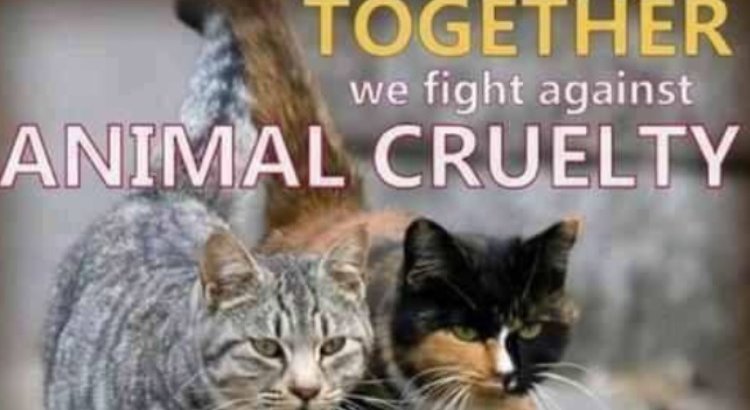In the grand tapestry of societal morality, the treatment of animals often serves as a litmus test for our collective conscience. The bewilderingly lenient sentences for animal cruelty resonate like a discordant note in a symphony; they disrupt the harmony we aspire to achieve in the realm of justice. When individuals commit acts of heinous brutality against defenseless creatures, the repercussions rarely reflect the gravity of the offenses. This leniency not only undermines the very fabric of our ethical standards but also reveals an unsettling disconnect between legislation and the moral outrage such actions instigate.
One might pause to query: how does society reconcile a passion for protecting our furry companions with the seemingly apathetic legal repercussions faced by their abusers? At first glance, it may appear as though animal cruelty is relegated to a lesser status within the sphere of criminality. Herein lies a troubling paradox: animals, in their silence, evoke empathy that society ardently champions, yet the legal systems governing such empathy fall woefully short.
To understand the roots of these lenient sentences, one must delve into the historical context. Animals have long been regarded as property rather than sentient beings. This antiquated perspective still permeates the legal landscape. The law often treats animal cruelty as a misdemeanor or a petty offense, with penalties that reflect this minimalism rather than the severity of the acts themselves. The implications of this view are profound—it effectively diminishes the value of life inherent in the non-human entities that share our world.
Moreover, judicial systems frequently exercise discretion that translates into remarkably soft judgments. Judges wield the power to impose sentences based upon the prevailing societal norms and values. Consequently, when animal cruelty cases come to court, the judicial lens may be clouded by a prevailing indifference. This perspective can foster a sentiment that some forms of animal abuse—such as neglect—are mere lapses in judgment rather than egregious violations of moral duty. Hence, offenders are often met with fines or community service, allowing them to evade the weighty consequences their actions warrant.
Another dimension that contributes to this disheartening phenomenon is the pervasive ignorance surrounding animal sentience. Despite the mounting scientific evidence supporting the emotional and cognitive capacity of animals, a chasm remains in public perception. The belief that animals lack the ability to suffer mentally or emotionally often manifests as a justification for leniency in the courtroom. Such apathy is troubling, for it diminishes the recognition that animals, much like humans, experience pain, joy, and suffering. The failure to appreciate these lived experiences leads to a paltry acknowledgment of the scars left behind by cruelty.
The legislature’s inability to advocate for stricter penalties further exacerbates the existing disparities. Lawmakers often prioritize other pressing societal issues, relegating animal welfare to the margins of political discourse. In this climate, it’s challenging to initiate robust discussions that can lead to substantive legislative reform. Efforts to amplify the voices of animals often dissipate due to a lack of political will, overshadowed by economic and social concerns that seem more immediate. Thus, the chance for meaningful dialogue on the necessity of tougher sentences for animal cruelty remains elusive.
Public response, too, plays an instrumental role in shaping legislative intent. While there are passionate advocates fighting tooth and nail for change, the general populace can sometimes exhibit a disconcerting detachment when it comes to animal welfare. This can lead to a vicious cycle: the indifference of the public influences lawmakers, who, in turn, contribute to the leniency of sentences. It is essential to recognize that collective apathy not only hampers progress but also perpetuates the cycle of violence against vulnerable creatures.
The media, a powerful catalyst for social change, also bears some responsibility in this scenario. In many cases, sensationalized portrayals of animal cruelty can overshadow the more routine, systemic forms of abuse that occur out of the public eye. Such skewed representations create a distorted narrative that can distract from the urgent need to address all forms of animal suffering. Stories of the most gruesome acts garner headlines, yet the quieter, everyday cruelties too often slip into obscurity, leaving less fodder for public outrage and legislative change.
Nevertheless, there is a flicker of hope that lies in the persistent advocacy from animal rights organizations, scientists, and compassionate citizens. Grassroots campaigns, petitions for legal reform, and education initiatives are integral in fostering a cultural shift regarding how society perceives and treats animals. By emphasizing the narrative that animals are not merely objects but indeed sentient beings deserving of protection, there is potential to reshape legal frameworks.###
The push for stricter penalties requires sustained effort and collaboration among diverse stakeholders. Engaging communities to raise awareness, informing lawmakers, and galvanizing public opinion are vital steps in the journey toward enacting transformative reforms. When societal attitudes begin to align with an understanding of animals as beings worthy of respect, change will unfurl like a flower in bloom, and justice can finally become synonymous with accountability.
In conclusion, the alarming leniency of sentences for animal cruelty encapsulates a broader societal malaise, reflecting deeply entrenched attitudes towards animals and inadequate legal frameworks. As we navigate the complex interplay of ethical considerations, legislative action, and public awareness, it is imperative to ensure that the roar of the voiceless resonates through the halls of justice. Ultimately, a commitment to change must be rooted in the conviction that every creature on this Earth deserves to be treated with the dignity and respect that is so oftentimes denied. A recalibration of our values is not just an aspiration; it is an ethical imperative that calls for immediate action.










